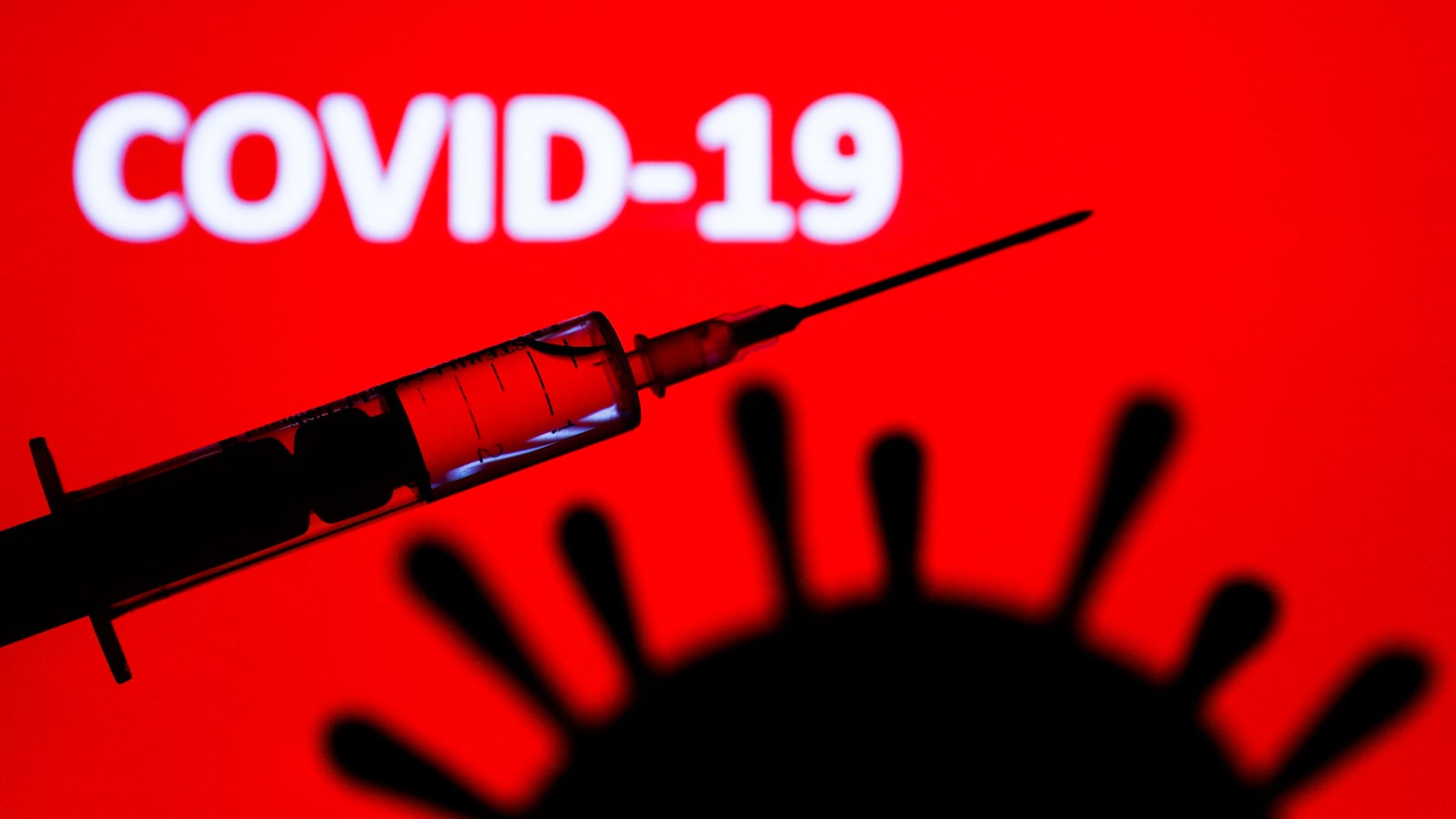On Thursday, the United States, Britain, and Canada alleged that hacking group APT29, known as Cozy Bear and believed to be part of the Russian intelligence service, is attempting to purloin information from academic and pharmaceutical research institutions involved in coronavirus vaccine development.
Kremlin spokesman Dmitry Peskov denied the allegations of Russia’s involvement in the ongoing attacks and claimed not to possess any information about those responsible for such activities, while Anton Morozov, a member of the Russian State Duma Committee on International Affairs, described them as “imaginary hackers.”
Russian state media, which serve as a barometer of the Kremlin’s worldview, have provided disturbing insight into the motivations behind such activity.
For months on end, politicians, Kremlin insiders, military experts, and influential thought leaders appearing on Russian state television have argued that development of a COVID-19 vaccine can serve as the lever of enormous influence for the nation that is the first to produce it. Such a nation could then demand the removal of all sanctions—a sore spot for the Kremlin—and assert itself as an invaluable, highly influential part of the world government.
“The situation is very reminiscent of Americans acquiring an atom bomb… What kind of trouble could befall us if only one nation develops coronavirus vaccine and doesn’t want to share it with the world?” pondered Vladimir Soloviev, the host of state TV program The Evening with Vladimir Soloviev, whose direct access and tight connections to Russian President Vladimir Putin are well known.
During his program in March of this year, Soloviev stressed: “Even the pause of several months can serve as an extremely important instrument of political pressure, because when you have the vaccine—but others don’t—using the soft power you can create such a hysteria and political pressure inside the country that has the disease, but does not yet possess the vaccine, that can lead to the change of government.”
Political scientist Dmitry Evstafiev concurred: “You would have to be a very naïve person not to realize that even a gap of a few months between the creation of vaccine in different countries, different blocs, different coalitions would be used politically.”
Thus the alleged hack fits into the bigger picture of Russia’s rivalry with the West, and the means it is willing to employ to come out ahead.
Cozy Bear, the team of hackers believed behind the Russian operation to steal vaccine secrets, is one of two Russian government-linked groups that broke into the Democratic National Committee computer network and stole emails ahead of the 2016 presidential election. In targeting research institutions, Cozy Bear is said to have used previously unknown malware dubbed WellMess and WellMail.
British Foreign Secretary Dominic Raab said, “It is completely unacceptable that the Russian Intelligence Services are targeting those working to combat the coronavirus pandemic.″
Intelligence officials believe that the persistent and ongoing attacks are not meant to disrupt or undermine the research, aiming instead to steal intellectual properties. The campaign of “malicious activity″ includes attacks against government, diplomatic, think-tank, healthcare and energy targets.
Appearing on The Evening with Vladimir Soloviev in March, Karen Shakhnazarov, CEO of Mosfilm Studio and a regular panelist on Russian state TV news talk shows, argued that due largely to the coronavirus pandemic, the Western dream of freedom and democracy is growing bleak, while authoritarian regimes are gaining strength and power. Russian experts believe that the ability to come up with the coronavirus vaccine first would certainly strengthen the global standing of such nations as Russia or China.
While the Russians would like to be the first to acquire the vaccine as a means of political influence, however, they would prefer that Westerners play the part of the guinea pigs used to develop such a remedy.
Appearing on Russia’s state TV show 60 Minutes, Larisa Popovich, Director of the Institute for Health Economics at Moscow’s Higher School of Economics, pointed out, “We have to make sure that the vaccine doesn’t have severe side effects and complications, which would take at least a year… I don’t want our people to serve as laboratory rabbits. We should use only safe vaccines on our people. Let them [Western countries] try it out on their own.” The host Evgeny Popov couldn’t hold back a sinister cackle.
By hacking into the coronavirus research by the United States and its allies, Putin’s Russia is striving not only to benefit from the fruits of foreign labors, but also to take the credit as the savior of the world. In March, state TV host Vladimir Soloviev derided the Trump administration’s efforts to obtain exclusive access to a COVID-19 vaccine from a German medical company CureVac in exchange for “large sums of money.”
Soloviev praised “Soviet-schooled” Russian epidemiologists and virologists and pompously predicted, “I have a feeling that we will save humanity again, like we’ve done more than once—and unlike our American and other colleagues, we won’t hold it back.” Regardless of the state media’s propaganda narrative, the Kremlin’s motives are certainly far from altruistic.
On Wednesday, the Russian Defense Ministry announced it had developed a “safe” coronavirus vaccine following clinical trials on a group of volunteers. The Defense Ministry did not say whether the vaccine was in fact effective. Russian state media quoted experts and government officials, who predicted that the vaccine might be available for use by September of this year. These claims and the true origins of the vaccine should be taken with a heavy dose of skepticism. Russian state media previously claimed that Russian scientists have created a coronavirus cure, but it turned out to be a malaria drug made in America.







